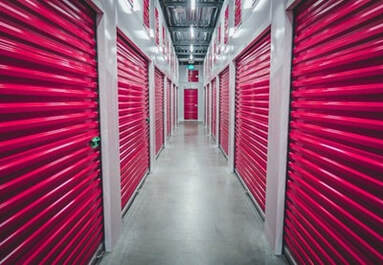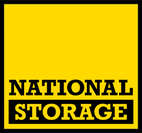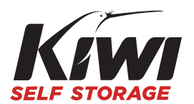Storage Units & Self-Storage Facilities Costs and Options 2024
Our definitive guide explains what a storage unit is, sample sizes and costs from companies such as Kennards Self Storage, Kiwi Self Storage, National Mini Storage, National Storage, Safeguard Storage and Storage King, what to consider when choosing a storage unit, must-know facts and frequently asked questions.
Updated 26 January 2024
Summary:
Our guide covers:
- Storage units are a great way to keep your items safe and secure for short or long periods. They're also an excellent option if you need extra space for your belongings, whether for a few days or several months.
- Unfortunately, storage unit companies offer many different storage spaces of all sizes, which makes it extremely confusing to compare prices.
- Additionally, there isn't a clear standard or pricing comparison between New Zealand storage unit companies, creating a point of uncertainty for many Kiwis.
Our guide covers:
MoneyHub Founder Christopher Walsh warns of the ongoing costs of storage when an upfront and unemotional cleanout may be a better idea in some situations:
|
"Storage units might seem like an easy fix for when your home feels cluttered, but it's important to pause and evaluate the situation - the costs add up once you're on the 'storage subscription'. I believe many of us store items out of habit or emotional attachment rather than necessity. It's essential to be upfront and pragmatic about what you truly need. Ask yourself, 'Am I storing items I'll use again, or am I avoiding making decisions about them?'
This guide outlines the costs, which add up quickly, turning what seems like a minor expense into a significant one over time. Also, a kind of mental tax comes with storing things away — it's an ongoing commitment that can weigh on you. In many cases, an honest and thorough cleanout can be a more effective solution. It's about making those tough decisions now rather than postponing them. Selling, donating, or recycling items can free up physical space and give you a sense of relief and clarity. Plus, the financial savings from not renting a storage unit can be considerable. Our Trade Me selling tips are a good start. It's not to say that storage units don't have their place - they're perfect in that ransitional life phases. But it's about being mindful and making choices that align with both your financial and personal wing. Don't pay to delay a decision - storage units are an expensive ongoing cost you can easily avoid." |
Christopher Walsh
MoneyHub Founder |
What is a Storage Unit?
- A storage unit is a space you rent typically measured by a few metres. You can rent a unit for a few months or years, and you can choose if you want a small amount of space or large amounts of it.
- Storage units provide an alternative place to store your physical belongings, whether for short term or long term reasons. People often use storage units when they're moving house because they don't want to pay expensive moving fees (or they don't have anyone around to help them move). A lot of people use storage units while they renovate their homes as well.
Why would I want a storage unit?
There are many reasons why people want self-storage units spaces. The most common reasons for hiring a self-storage space include the following:
- You need a place to store things
- You're moving house, renovating your home. or going on a long trip
- You want to declutter your home
- You need a place to keep things safe and dry
- Depending on your situation, you need a place to keep things organised or out of the way
- You need a place for things you can't keep at your home or don't have space for
What’s the process to rent out a storage unit?
Comparing weekly or monthly rates is essential - prices differ significantly. For this reason, the first step is to get a few quotes and ask about their insurance policy, facility security, and types of storage spaces available. Additionally, ask about the terms and conditions of renting a storage space. Location is important - many storage companies operate multiple locations, so find out if the self-storage facility is located near where you live or work - and if not, how far away it is from where you need it to be.
Comparing Storage Unit Companies and Costs
Several self-storage companies offer units services for individuals and businesses. Some of the top self-storage units companies located throughout New Zealand include:
National Storage
Website: National Storage
Locations: Across New Zealand with centres in Auckland, Hamilton, Wellington, Bay of Plenty, Christchurch and Dunedin
Features: Online booking and payment and automated security gates. In addition to self-storage, National Storage offers various services, such as removals, packing, and storage insurance.
Locations: Across New Zealand with centres in Auckland, Hamilton, Wellington, Bay of Plenty, Christchurch and Dunedin
Features: Online booking and payment and automated security gates. In addition to self-storage, National Storage offers various services, such as removals, packing, and storage insurance.
National Mini Storage
Website: National Mini Storage
Locations:: Auckland and surrounding areas
Features: Offers a range of self-storage units in a variety of sizes, as well as outdoor storage options for vehicles. Facilities are equipped with security measures such as CCTV cameras and security gates to protect the safety of stored belongings. The company also offers online booking and payment options, making it easy for customers to reserve a unit and manage their rental payments from their homes. In addition to self-storage, Mini Storage offers a range of packing materials and moving supplies for sale.
Locations:: Auckland and surrounding areas
Features: Offers a range of self-storage units in a variety of sizes, as well as outdoor storage options for vehicles. Facilities are equipped with security measures such as CCTV cameras and security gates to protect the safety of stored belongings. The company also offers online booking and payment options, making it easy for customers to reserve a unit and manage their rental payments from their homes. In addition to self-storage, Mini Storage offers a range of packing materials and moving supplies for sale.
Kiwi Self Storage
Website: Kiwi Self Storage
Locations:: Auckland and Wellington
Features: Wide range of self-storage units available in various sizes and additional services such as insurance and packing materials. In addition, customers can choose from a range of lease terms, including short-term and long-term rentals.Kiwi Self Storage offers storage units for both homes and businesses and vehicle and boat storage. Each storage unit is equipped with alarms and under CCTV camera surveillance, and the facility is audited annually for health and safety to ensure that it is clean and tidy. In addition, the facility has extended access hours, and 24-hour access is available upon application.
Locations:: Auckland and Wellington
Features: Wide range of self-storage units available in various sizes and additional services such as insurance and packing materials. In addition, customers can choose from a range of lease terms, including short-term and long-term rentals.Kiwi Self Storage offers storage units for both homes and businesses and vehicle and boat storage. Each storage unit is equipped with alarms and under CCTV camera surveillance, and the facility is audited annually for health and safety to ensure that it is clean and tidy. In addition, the facility has extended access hours, and 24-hour access is available upon application.
Kennards Self Storage
Website: Kennards Self Storage
Locations: Auckland, Bay of Plenty, Hawkes Bay, Manawatu, Wellington
Features: Variety of storage options, including personal and business storage spaces, wine storage cellars, motorcycle storage, mini-warehouses, open space boat, RV and car storage, and lock-up car storage. They also have a box shop to purchase clean boxes and packaging supplies. The facility is highly secure and operates 24/7, so you can access your items anytime.
Locations: Auckland, Bay of Plenty, Hawkes Bay, Manawatu, Wellington
Features: Variety of storage options, including personal and business storage spaces, wine storage cellars, motorcycle storage, mini-warehouses, open space boat, RV and car storage, and lock-up car storage. They also have a box shop to purchase clean boxes and packaging supplies. The facility is highly secure and operates 24/7, so you can access your items anytime.
Safeguard Storage
Website: Safeguard Storage
Locations: North Island: Bulls, Gisborne, Hamilton, Levin, Wellington, Mangōnui, New Plymouth, Otaki. Palmerston North, Rotorua, Waihi, Whakatane South island: Ashburton, Christchurch, Ferrymead, Hornby, Nelson, Rolleston, Sydenham, Timaru
Features: Extensive range of self-storage units in hubs across the North and South islands, all their locations are fully gated, alarmed and have dedicated on-site managers. Short and long-term options are available.
Locations: North Island: Bulls, Gisborne, Hamilton, Levin, Wellington, Mangōnui, New Plymouth, Otaki. Palmerston North, Rotorua, Waihi, Whakatane South island: Ashburton, Christchurch, Ferrymead, Hornby, Nelson, Rolleston, Sydenham, Timaru
Features: Extensive range of self-storage units in hubs across the North and South islands, all their locations are fully gated, alarmed and have dedicated on-site managers. Short and long-term options are available.
Storage King
Website: Storage King
Locations: Auckland, Hamilton, Rotorua, Tauranga, Christchurch, Dunedin, Wanaka
Features: Range of self-storage units in various sizes and additional services such as insurance and packing materials. Customers can choose from a range of lease terms, including short-term and long-term rentals. Storage King has over 780 units with 17 different sizes available.
Locations: Auckland, Hamilton, Rotorua, Tauranga, Christchurch, Dunedin, Wanaka
Features: Range of self-storage units in various sizes and additional services such as insurance and packing materials. Customers can choose from a range of lease terms, including short-term and long-term rentals. Storage King has over 780 units with 17 different sizes available.
How much does it cost to rent out a storage space?
- The prices for self-storage units in New Zealand can vary widely depending on several factors, including the facility's location, the unit's size, whether it's on the ground floor or on an upper level, the rental period's length, and any additional services or amenities included. Therefore, it's essential to compare prices and services offered by different self-storage companies before deciding.
- We've included below a sample guide to how much it may cost per month for storage spaces of varying sizes based on the top companies listed above for units in Auckland's North Shore. Note that this is a guide only, and the actual quote the company gives you may vary. In addition, many prices will vary depending on the location and number of vacant slots. Therefore, the information provided may be subject to change at any time.
Company |
1.5m x 1.5m (2.25 sq m) |
3m x 3m (9 sq m) |
6m x 3m (18 sq m) |
$157 / month |
$241 / month |
$351/ month |
|
$125 / month |
$315 / month |
$480 / month |
|
$170 / month |
$315/ month |
$567/ month |
|
$193 / month |
tbc |
tbc |
|
N/A |
$280/ month* |
$380/ month* |
|
$100 / month |
$280/ month |
$470/ month |
- *sizes are slightly different, Width of the unit is 2.3m instead of 3m
- Source: MoneyHub Analysis, Company Websites for storage spaces in Auckland North Shore, December 2023
What Are the Top Factors to Consider When Choosing Storage Units?
There is a lot of competition among storage unit companies; finding one that offers what you need at a price you're comfortable with is essential. To help you make an informed decision, here are some key things to think about when choosing a storage unit:
- Cost: How much does the rental cost? This depends on the size of the space and the length of time you need it. Some companies also offer discounts if you pay upfront. The cost of renting a storage space will vary depending on the size of the unit, the length of time you need it, and the facility's location.
- Size of the unit: Many self-storage companies offer a range of unit sizes to accommodate the needs of their customers. For example, smaller units may be suitable for storing a few boxes or pieces of furniture, while larger units may be suitable for storing the contents of an entire house . It's important to carefully consider the unit size you will need to ensure that it is sufficient to hold all your belongings.
- The specialisation of the unit: Some self-storage companies offer specialised units for the storage of specific types of items. For example, some companies may offer climate-controlled units for storing wine, art, documents or units with extra security measures for storing valuable items. These specialised units may come at an additional cost, so it's important to consider whether they are worth the investment based on your specific needs.
- Location and Access: Where is the storage unit located? You'll want to choose a location that's convenient for you. How easy is it to access the rental space? Some companies have 24/7 access, while others have limited hours.
- Security: How secure is the storage unit? This is important if you're storing valuable items. Make sure the facility has security cameras and alarms. Self-storage facilities should have security measures in place to protect your belongings. Ask about their security measures and determine if they have 24/7 surveillance or security guards.
- Insurance: Does the storage unit company offer insurance? This is important in case of damage or theft. Most self-storage facilities will require you to have insurance for your belongings. Make sure to ask about their insurance policy and what it covers.
- Climate control: If you're storing items sensitive to temperature and humidity changes, look for a facility that offers climate-controlled units.
- Additional services: Some self-storage companies in New Zealand offer additional services such as packing materials and moving assistance to make storing your belongings easier and more convenient. However, these services may come at an additional cost, so it's important to consider whether they are worth the investment based on your specific needs.
- Payment methods: Many self-storage companies in New Zealand offer online booking and payment options, making it easy to reserve a unit and pay for your storage unit from the comfort of your home. Some companies may also offer flexible lease terms, allowing you to rent a unit for as short or as long as you need.
- Financing/lease terms: Many self-storage companies in New Zealand offer flexible lease terms, allowing you to rent a unit for as short or as long as you need. This option can be convenient for people who are in the process of moving or who need temporary storage while they are away.
Must-Know Facts about Storage Units and Rentals
Costs will vary depending on the location you’re hiring your storage space in.The costs listed above are for units located in Auckland and may vary from one location to another. They also don't include extra charges such as cleaning fees or other service costs associated with hiring self-storage facilities in New Zealand. |
Self-storage facilities are almost always recorded for security purposesMany self-storage companies offer a range of security measures to protect the safety of your belongings while they are being stored. These measures may include CCTV cameras, secure gates and fences, and on-site security personnel. Considering the security measures when choosing a self-storage facility is important, as you will entrust the company with your valuable possessions. |
Amenities differ wildly between self-storage providersSome self-storage companies offer additional amenities, such as drive-up access to units, making loading and unloading your belongings easier. Other companies may offer climate-controlled units to protect sensitive items from extreme temperatures or humidity. |
Location is criticalWhen choosing a self-storage facility, it's important to consider the location of the facility and how convenient it will be for you to access your belongings. Some companies may offer multiple locations throughout New Zealand, while others may have a single facility in a specific city or region. |
Consider getting insurance for your self-storage containerSome self-storage companies may offer insurance for your stored belongings as an optional add-on service. However, it's important to carefully review the terms of any insurance policy and determine whether it is necessary for your specific needs. Sometimes, your existing homeowners or renters insurance may cover your stored belongings, so it's always a good idea to check with your insurance provider before purchasing additional coverage.
|
Fully inspect the self-storage unit before hiring it outIt's a good idea to carefully inspect your self-storage unit before signing a rental agreement and moving your belongings in. Look for any damage or potential issues, and ensure that the unit is clean and in good condition. If you notice any problems, be sure to bring them to the attention of the self-storage company before signing the agreement. |
Compare quotes between different companies before signing any self-storage spacesCompare prices and services offered by different self-storage companies before deciding. It may also be helpful to read online reviews from other customers to get a sense of the quality of the facilities and customer service. |
Make sure to pick the right self-storage size for your needsMany self-storage companies offer a range of unit sizes to accommodate the needs of their customers. For example, smaller units may be suitable for individuals or businesses that need to store a few boxes or pieces of furniture. In comparison, larger units may be suitable for storing the contents of an entire house or business. Some companies may also offer specialised units for storing items such as wine, art, or documents requiring climate control. |
Carefully read the terms and conditions BEFORE you sign the leaseIt's important to carefully read the terms and conditions of your self-storage unit agreement before signing it. This review will ensure that you understand any fees or charges incurred and any rules and regulations you are expected to follow while storing your belongings at the facility. |
Frequently Asked Questions
How do I find the right storage unit for my stuff?
The first step is to determine what type of storage unit you need. Do you need a short-term or long-term storage solution? What type of belongings do you need to store? Once you know the answers to these questions, you can search for storage units that meet your needs.
What is the average cost of a storage unit?
There is no single price - the cost of a storage unit will vary depending on the size of the unit, the length of time you need it, and the facility's location.
What security measures should I look for in a storage unit?
Regarding security, you should look for a self-storage facility with security measures in place to protect your belongings. Ask about their security measures and determine if they have 24/7 surveillance or security guards.
What is the best way to store my belongings in a storage unit?
Packing your belongings properly is the best way to store them in a storage unit. Make sure to label all your boxes and keep a list of what is in each box. You should also consider using storage containers that are stackable so that you can maximise space.
Does storage come with protection and insurance?
It depends. Generally, self-storage providers will have built-in security functions (such as CCTV cameras, on-site security or gates) to prevent unwanted break-ins. However, with all this in mind, there are still instances of theft or break-ins. Therefore, if you want additional security, there may be options for you to purchase upgraded units that have certain characteristics compared to the traditional storage facilities.
Insurance is not usually included with the basic storage unit plans. Factors not in the storage facility's control (such as flooding, water damage, power outages or natural disasters) are also likely not to be included unless you pay extra. This type of insurance disclosure will vary depending on the storage facility provider.
Insurance is not usually included with the basic storage unit plans. Factors not in the storage facility's control (such as flooding, water damage, power outages or natural disasters) are also likely not to be included unless you pay extra. This type of insurance disclosure will vary depending on the storage facility provider.
Related Guides:

























